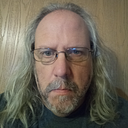Member-only story
Spiritual non-politics
I recently watched an old Wayne Dyer program where he briefly mentions Carl Jung’s four stages of adulthood:
- The Athlete: Focused on your own body, its looks, its abilities.
- The Warrior: Focused on acquisition and prestige.
- The Statesman: Focused on service to others. Other websites call it The Statement: what mark you want to leave in the world.
- The Spirit: Realization of the true self, which is more than your body.
The model doesn’t imply that everyone goes through each stage in the same order for the same number of years, but I was struck by the progression and how it corresponded to the development of my political thought.
First, corresponding to youthful concerns of The Athlete or the body, in my idealistic youth I was most concerned about individual rights and freedoms.
Second, corresponding to the Warrior, I became more pragmatic. Using data and reason, my emphasis was: YOU’D be better off, we’d ALL be better off, if we did X, Y, and Z.
Third, corresponding to the Statesman, I was increasingly moved by empathy. What I couldn’t in good conscience do to another person, the government shouldn’t do either. This circles back to concern for individual rights, but on a more human and less abstract level. You don’t need a religious or philosophical text, or the Declaration of Independence or Constitution, to realize the government should leave your peaceful neighbor alone in peace.
